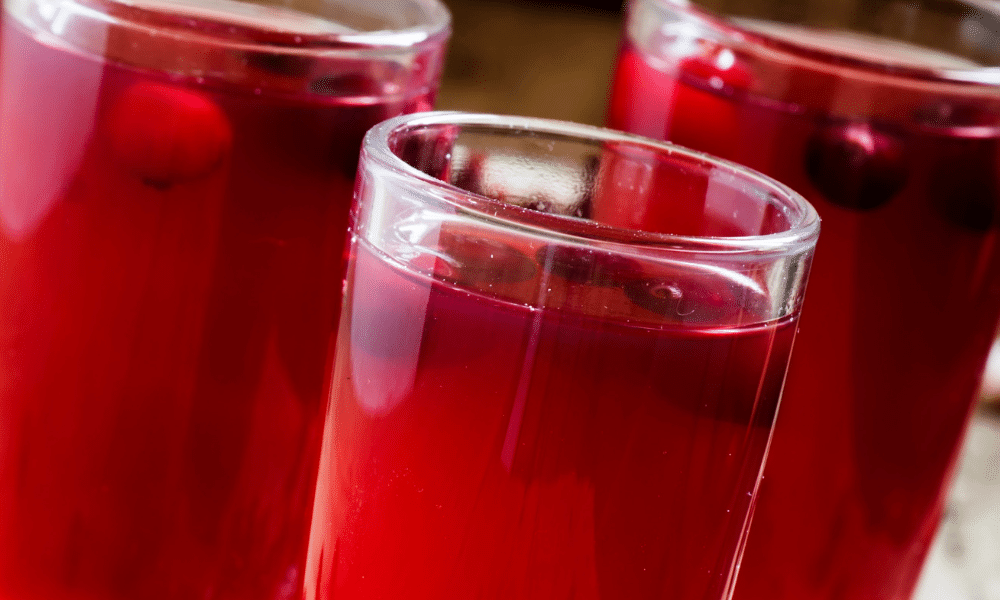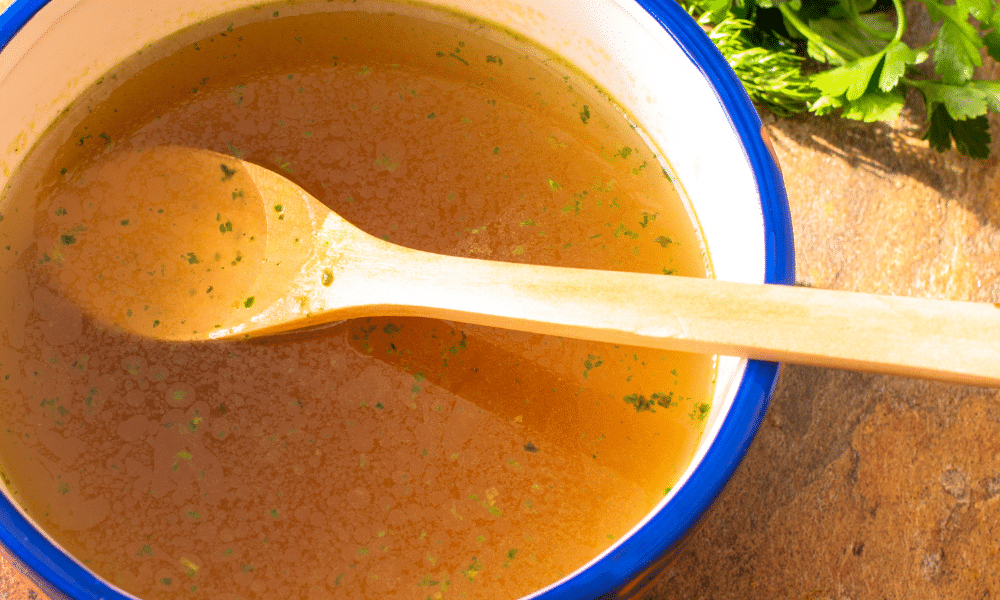Red wine is such a versatile cooking ingredient. It is often used in recipes to add richness and depth, for glazing dishes, to poach fruits and to elevate a dish’s flavour.
However, red wine is a luxury ingredient to most people and is not always accessible. What can you use to make your dish delicious without using up your grocery budget?
Our 4 Substitutes for Red Wine in Cooking
A red wine substitute needs to be able to harmonise with the rest of your dish and provide a rich, full flavour.
Here are our top picks you should use in place of red wine:
1) Red Grape Juice
Unsweetened red grape juice is sour and has a tart aftertaste which resembles that of red wine when used in a dish. Though there is a fruiter tinge to the juice which makes it a bad substitute for pasta sauces.
You should use unsweetened grape juice as it will already be sweeter than red wine. While that makes it a good substitute for desserts, you should be cautious when using it for other purposes.
With a high acidity level, grape juice is perfect for tenderizing meat and deglazing pans after frying meat or vegetables. It works particularly well for roast meat.
Using red grape juice will give you that deep red look but you could also use regular grape juice if you have it to hand.
Use Vinegar to Reduce Tartness
The tartness of grape juice provides a depth of flavour to richer soups or stews. Though if you find the flavour to be too overwhelming for your dish then use a dash of vinegar to balance it out.
Don’t overdo it with the vinegar otherwise, your dish will become too acidic. A tablespoon will be plenty.
2) Cranberry Juice
Much like red wine, cranberry juice has proven to be full of healthy antioxidants. It is also known to work well at warding off urinary tract infections.
With just a tablespoon of vinegar, cranberry juice takes on a tart flavour with all the acidity needed to tenderize meat through a marinade.
Cranberry juice is most often used as a red wine substitute in dessert recipes. Its mildly sweet, tart flavour and consistency allow it to make the perfect cake glaze or accompanying sauce.
Though this same flavour will make it too overpowering to use in a pasta sauce.
Add Apple Cider Vinegar for Dry Red Wine
Cranberry juice is a bit more versatile than red grape juice as it can replicate the flavour of dry red wine as well as unsweetened red wine. Simply add a tablespoon of apple cider vinegar instead of regular vinegar and use it as you would dry red wine.

3) Tomato Juice
Unlike other substitutes, tomato juice does bode well when used as a replacement for red wine in pasta and tomato-based sauces. So long as those sauces are slowly cooked and are not quick pan sauces.
This is because tomato juice is more bitter than red wine and so needs time to let that bitterness be removed.
Desserts do not deal well with the bitterness of tomato juice even if you try to remove the flavour, so avoid using it in anything intended to be sweet.
Such flavour allows you to elevate marinades and sauces, especially because those sauces must be left to cook over a long period.
Remove Bitterness with Other Juices
If you do not have the time to let your sauce or marinade cook for hours, then you can always use grape or apple juice to reduce some of the bitterness.
Though it will not get rid of the flavour completely, it will help reduce it so that your dish is not overwhelmed.
4) Beef Stock
Beef stock or broth is the easiest, cheapest substitute you could use for red wine, but there are some drawbacks.
There is no acidity in stock, so use vinegar on a 1:1 ratio to manually add that acidity. Stock is also very salty so be aware of this when you come to season your dish.
Beef stock is full of rich flavour and seasoning so, you can guarantee that your dish will not fall flat.
Many soups and meat marinades include stock in their recipes anyway so just add more instead of red wine. It is way cheaper, and you probably already have beef stock in your pantry.
Most Stocks Will Work
Though beef broth does provide a flavour closest to red wine, you could also use chicken or vegetable stock if you prefer. Use the same amount of broth or stock as red wine that a recipe calls for, and you will still be able to make a delicious dish.

Other Substitutes for Red Wine in Cooking
Not everyone will have the above options already in their kitchen. So, here are a few more accessible red wine substitutes for when you can’t be bothered to nip to the shop:
- Canned Mushroom Liquid – Canned mushrooms are stored in a salty liquid that develops a complex flavor profile.
- Vinegar –If you are using red wine to tenderize your meat, then vinegar alone can achieve that. But in a sauce, you will not get any added flavor.
- Dry White Wine – You could always swap out red wine with whatever white wine you have to hand. Dry white wine can be just as expensive to buy, so only use this if you happen to have a bottle laying around.
Summary
Red wine is used in cooking to enrich a dish. Its acidity helps meat to become softer while its tartness elevates soups and sauces.
Red grape juice best mirror the flavour of red wine so long as you add some acidity through the use of vinegar.
